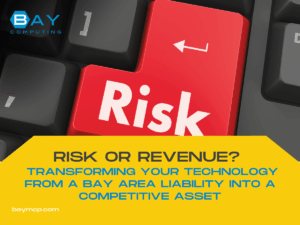How To Implement Best Practices For Business IT
Implementing best practices for business IT helps companies improve efficiency, protect sensitive data, and get more value from technology investments. By focusing on strategies like system standardization, regular maintenance, security updates, and business continuity planning, organizations can avoid common issues and reduce downtime. Using these practices also makes it easier to manage growth and changes in technology needs over time.
Business leaders and IT teams often want to know the most effective ways to build a strong foundation for their IT systems. Knowing where to start can be overwhelming, but practical steps such as standardizing hardware and software and using proactive monitoring offer clear paths forward. These actions support smoother daily operations and help companies adapt as technology evolves.
By focusing on proven methods that simplify IT management, leaders set up their teams for lasting success. This approach means less time spent fixing problems and more time reaching business goals.
Establishing IT Best Practices
Clear IT processes improve performance, minimize risks, and support business growth. Following structured steps will help any company set up the right systems for lasting results.
Defining Business IT Objectives
Every business must know what it wants to achieve with its IT systems. Goals can include faster customer service, improved employee productivity, or stronger data protection. When setting these objectives, it helps to involve key leaders from different departments.
Writing down objectives makes progress easier to track. For example, a company may want to reduce server downtime by 25% in a year or upgrade cybersecurity by the next quarter. These clear targets give the IT team direction.
Reviewing objectives often is important. As the business and technology evolve, objectives may need updates to stay relevant and achievable.
Creating IT Governance Frameworks
Good governance helps manage IT systems responsibly. A framework sets rules for decision making, technology use, and accountability within the business.
Key elements include:
- Clear roles for IT leadership and staff
- Regular evaluation of new and existing technologies
- Policies that spell out how decisions are made
Many use established models like COBIT or ITIL to design their governance. This makes sure everyone follows the same procedures and reduces confusion. It also helps to align IT with business needs and maintain compliance.
A governance framework must be updated as business priorities and laws change. Ongoing education and training will help staff stick to the guidelines.
Developing Security Policies
Every IT system needs rules to keep information safe. Security policies should explain how to use networks, store files, and protect data from threats.
Basic areas every company should cover include:
- Rules for creating and managing passwords
- Steps for reporting suspicious emails or activity
- Procedures for backing up important files
Security training is important for all staff, not just the IT team. These policies should match industry standards and follow relevant laws. Companies should check and update policies regularly to keep up with new security risks.
Using best practices for security, like multi-factor authentication and regular software updates, helps prevent breaches and data loss.
Aligning IT With Business Goals
IT plans work best when they support business priorities. Regular meetings between IT leaders and business managers help achieve this alignment.
Teams should review new software, hardware, or cloud services to see how they meet company needs. It is important to track changes in the market and adapt the IT strategy to support growth.
By linking IT spending and projects to clear business objectives, companies can get the most value out of their technology. This approach also makes budgeting simpler and shows which improvements have the biggest impact.
Set up reporting to measure how IT activities help meet business goals. Adjust IT plans as goals change to keep supporting the company’s priorities.
Optimizing IT Processes and Performance
Optimizing IT operations means making processes more efficient, reducing errors, and keeping business systems running smoothly. A focus on change management, compliance, and user support helps keep IT aligned with business goals.
Implementing Change Management
Change management is about preparing, supporting, and helping teams and systems through technology updates or improvements. Clear communication before, during, and after changes reduces confusion and downtime. IT leaders should use a standard change management process to track, approve, and document changes.
Steps like reviewing the impact, running tests, and collecting feedback help avoid mistakes. Training staff on new changes also reduces resistance and boosts adoption. Tracking changes using a documented process helps identify what worked and what needs adjustment.
Regular reviews of past changes let teams improve the way they handle future updates. This approach keeps IT environments stable while allowing for updates that support growth.
Ensuring Regulatory Compliance
IT teams must follow local and international laws that protect data, privacy, and business operations. Common requirements include data encryption, secure backups, regular audits, and strict access controls. Failing to meet standards can lead to legal issues and financial penalties.
Keeping up with rules like GDPR or HIPAA means staying aware of new changes in the law. IT staff should use compliance checklists, conduct self-assessments, and schedule regular audits to close any gaps. Automated tools can help monitor who accesses data and when, reducing manual work and risk.
A clear compliance policy also helps staff know their responsibilities. Documenting every compliance step makes audits faster and simpler.
Enabling User Training and Support
Strong IT performance depends on users knowing how to use technology safely and efficiently. Regular training sessions should teach staff about security risks, software updates, and best practices for business tools. A simple learning schedule makes it easier for everyone to stay updated.
Help desks and user support teams need clear, friendly processes so problems get fixed fast. Live chat, email, or phone support options ensure all users can get help in the way they prefer. Posting frequently asked questions (FAQs) and guides on the company site saves time for both users and IT support staff.
Tracking common support requests also shows what topics need more training or simpler solutions. This cycle of feedback and support leads to better productivity and fewer system issues.
Set Your Business Up for IT Success
Take control of your company’s tech performance with proven IT best practices. From security policies to system optimization, Bay Computing helps you align IT strategies with real business goals. Whether you’re starting fresh or refining existing systems, our expert support makes implementation clear and manageable.
Get expert guidance from Bay Computing and build a smarter, safer, and more efficient IT environment today. Contact us to get started.




